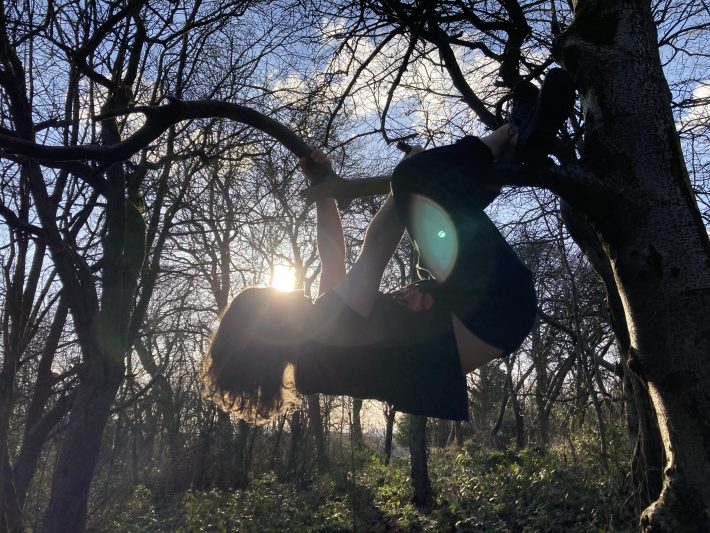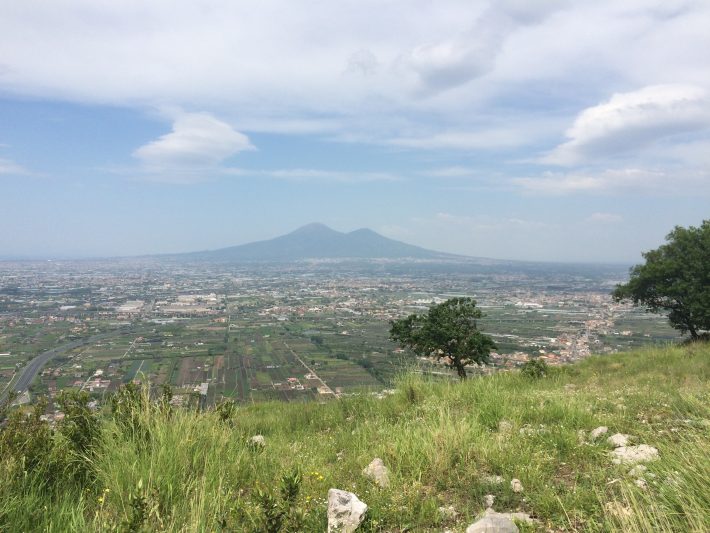International Transgender Day of Visibility: Embracing my fluid identity
Last Friday was International Transgender Day of Visibility. To mark the occasion, Rhei Ammaturo, PhD student at the University of Strathclyde, tells us about the importance and challenges of being visibly trans.

My name is Rhei (pronouns: ze/zir) and I am a queer, neurodivergent, Italian PhD student based in Scotland. My background is in mathematics, and I am now modelling Scottish scallop stocks as part of a NERC-funded PhD at the University of Strathclyde.
I’ve always been interested in exploring and understanding the natural world. As a child I’d turn the pages of encyclopaedias on the natural sciences, each month picking a new favourite.
My two competing loves during my undergraduate were fluid dynamics and mathematical biology, and I never quite decided which I preferred. I did a research masters in geophysical fluid dynamics, then moved into population modelling for my PhD. Biology looks very queer to me; I never really knew what a scallop was until I started my PhD, and I was amused when I discovered that they usually have both sets of gonads.
I feel that too often scientists take a step away from social issues and focus on “objective observations”. I don’t think it’s possible to work in an environmental subject and ignore society’s urgent need to become more just and inclusive. This became increasingly evident to me after I moved out of cis-hetero-amato-normativespaces (amatonormativity is the assumption that romantic monogamy is the preferred type of interpersonal relationship among humans) towards more queer spaces. When the people I love are suffering discrimination and harassment daily, it becomes harder to ignore. I feel driven to keep educating myself and to take action to build the world I want to see.
This led me to join the student committee of my Doctoral Training Partnership (DTP) as a Diversity, Equality and Inclusion (DEI) representative. It has been refreshing to see growing interest in DEI matters, with projects started at my DTP and more LGBT+-focused research being carried out at my host university. Yet, still more needs to be done.
As a queer person I am delighted when I can be in spaces where my identity is not assumed or measured against a prejudiced standard. Knowing that people like me, who face increased discrimination due to their minority identity status, are around me gives me strength and happiness.

I want to acknowledge that, despite carrying many intersecting minority characteristics, I am in a very privileged position compared to many others. I am white in a country where structural, economic and cultural systems favour white people, I am a citizen of the country where I dwell, and my parents had stable well-paid jobs so I could afford to attend university without too much struggle.
I think as humans we are often in flux, but perhaps prone to fix our identities to what is most appropriate in a given context. Part of my queerness comes in embracing my fluctuating identity, in all aspects of life. I am attracted to people of all genders, non-monogamous and non-binary.
Even in my academic learning I feel queer, with my refusal to stick to a single discipline, breaking the assumption that one must build a career diving progressively deeper into specialised learning. I am looking at shellfish today, but tomorrow I might be reading about foxes or human pathogens.
Being non-binary in our society affects all aspects of one’s life in subtle ways which add up to a lot. It has been difficult to accept that, because of my queerness and health conditions, making travel arrangements for potential field expeditions more difficult than average. From accessing medication abroad to facing discrimination or worse, some exciting parts of the world feel “closed off” to me at the moment.
My workplace runs awareness courses on important matters which affect our health, but it is surprising to me that women’s health and health issues with a severe impact on quality of life get little attention. It is less surprising, but perhaps more heart-breaking, how little awareness people around me seem to have about medical transitioning matters.
I often feel very isolated and helpless when I remember the length of the waiting list I am on to access what is considered essential healthcare. It is not easy to put it to the back of my mind and accept this inequality in access to healthcare, while a considerable amount of my PhD stipend goes into private healthcare to keep me alive. But again, I am privileged to be able to afford that, even though it comes with sacrifices, because many other people are unable to.
I felt these fears were like being imprisoned, so I wanted to change things and become more visible.
I am afraid of being fully out for fear of harassment. Most cis-gender people probably don’t face anxiety at the thought of using gendered restrooms for fear of being questioned by strangers. I get questioned about once a week, and it is just one more piece of anxiety that weighs on my mind.
It can be tiring to constantly feel under threat in a shifting political climate which presents itself as hostile to genderqueer identities. I felt these fears were like being imprisoned, so I wanted to change things and become more visible. I talk about my transition with my co-workers, because it is a big part of my life. I wear badges, and Pride shoelaces. And I was happy to hear about this opportunity to write for Transgender Day of Visibility. I hope that the next few years will see more inclusion of trans and non-binary identities in places of work and in society.
Follow Rhei on Twitter and find out more about Rhei’s PhD here.
Like what we stand for?
Support our mission and help develop the next generation of ecologists by donating to the British Ecological Society.